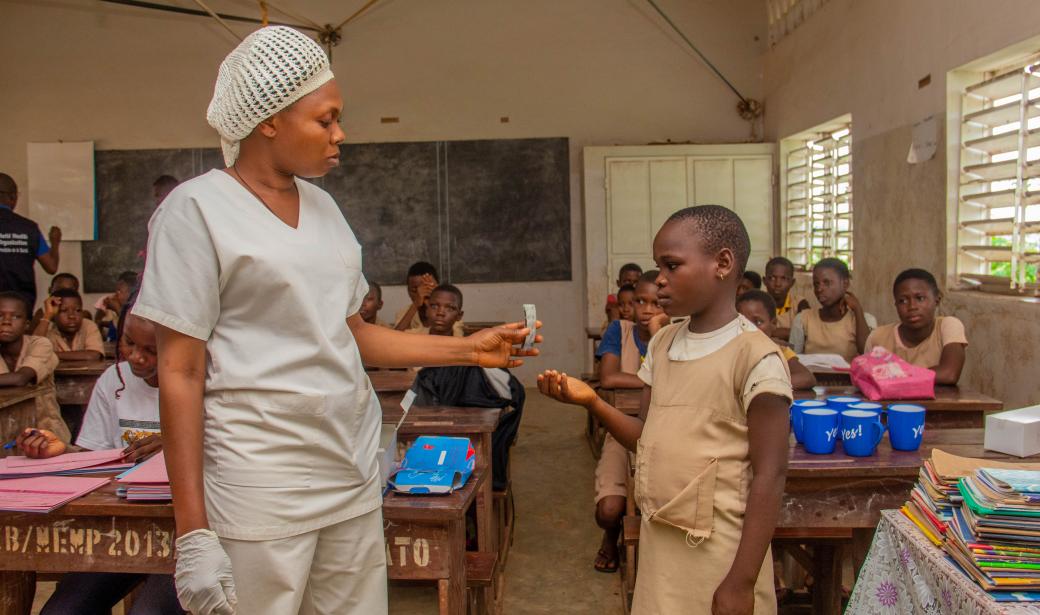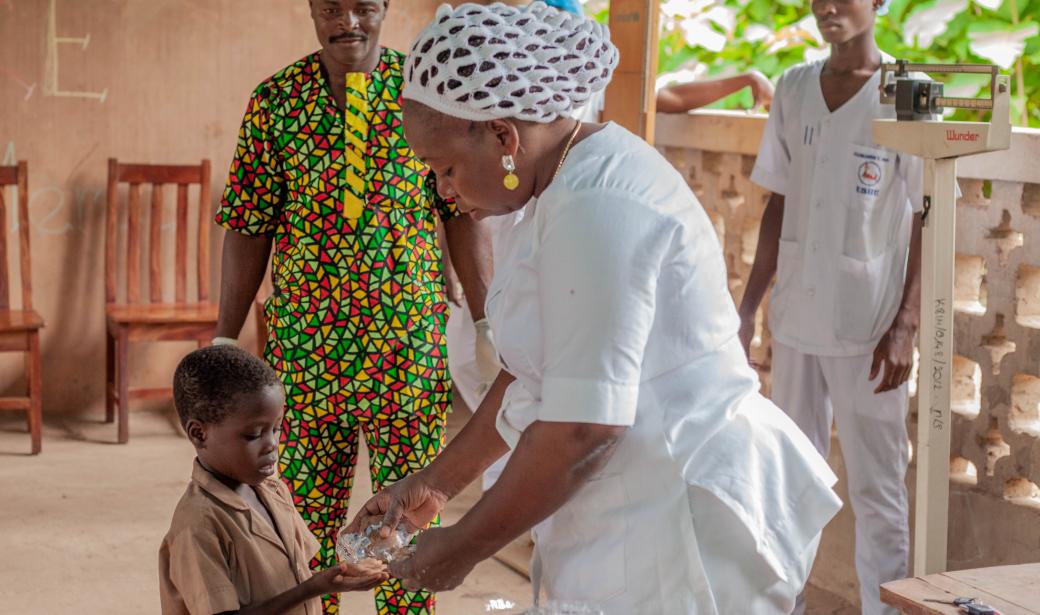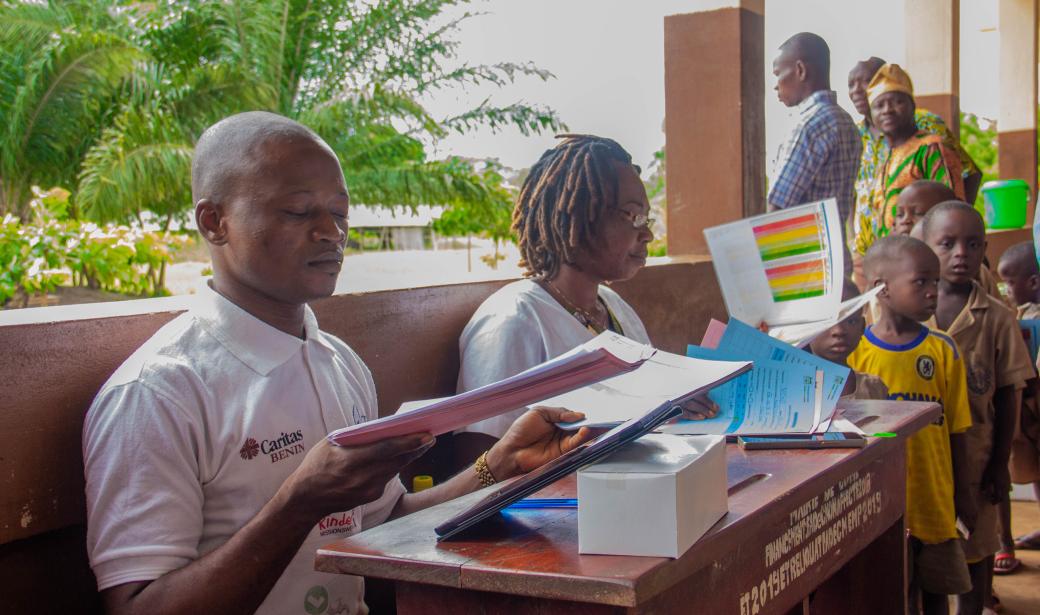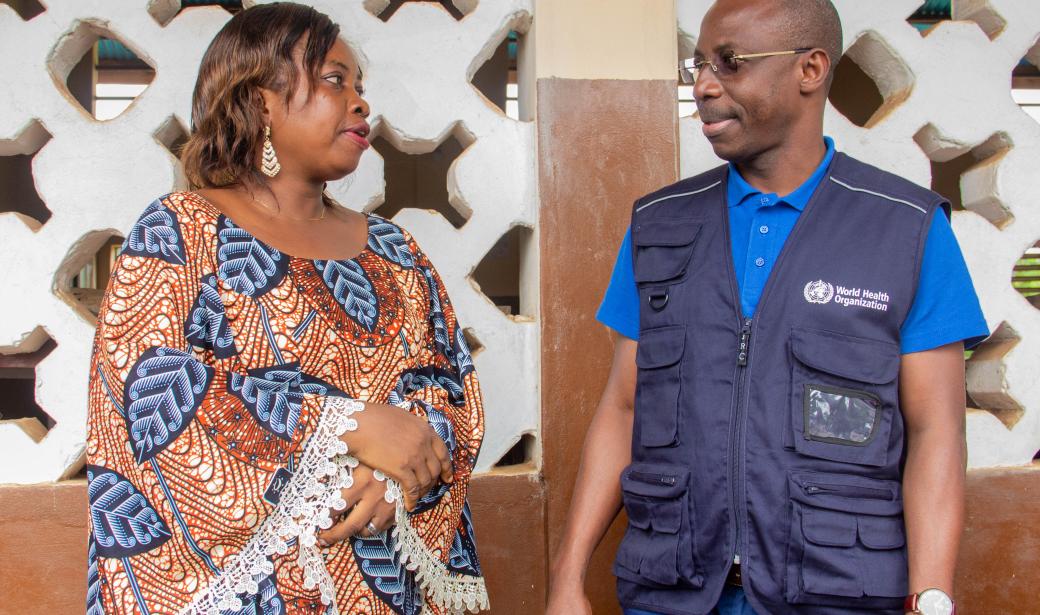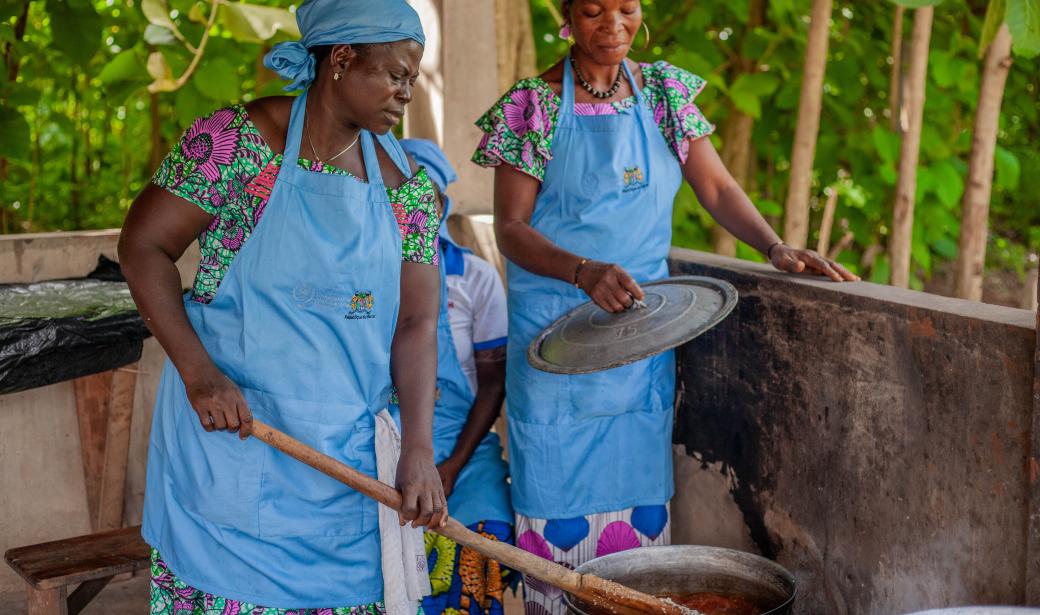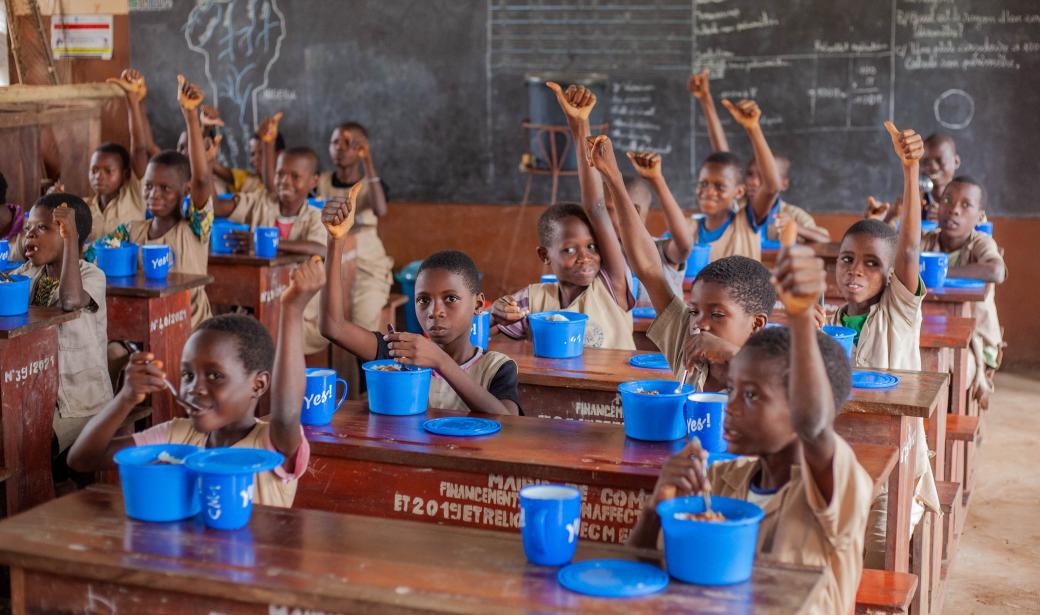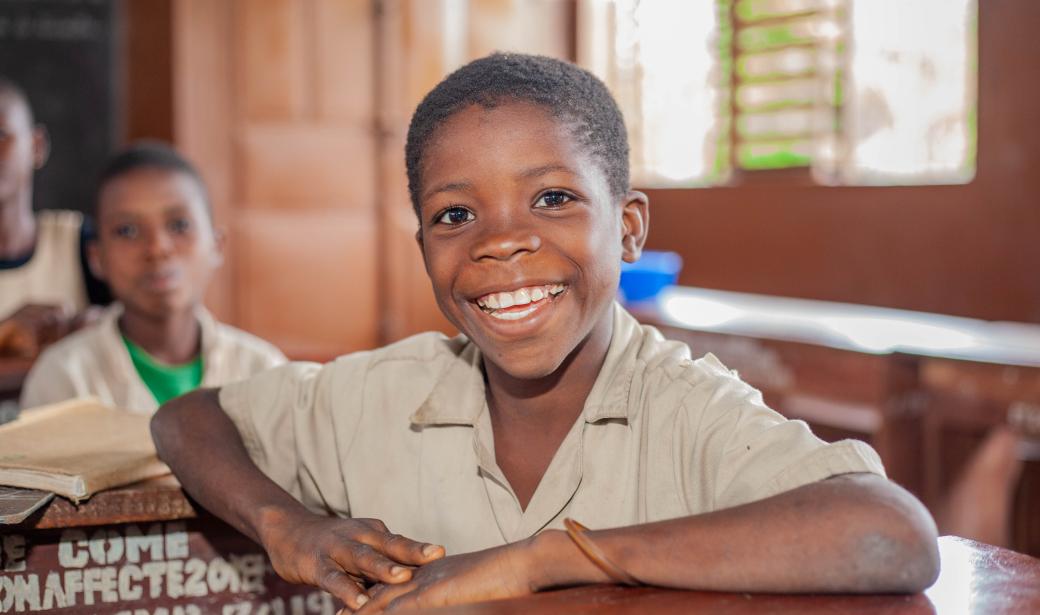Porto-Novo – Every day of the week, all primary and pre-primary pupils attending Benin's state schools are provided with a hot meal, served up in school canteens courtesy of the country’s National Integrated School Feeding Programme. The aim is to accelerate progress towards meeting the Sustainable Development Goals (SDGs) related to the elimination of hunger, and health, well-being and education for all, while supporting increased school enrolment and retention rates.
To add value to the programme, and also improve the health and psychomotor development of schoolchildren, an associated nutritional and health monitoring campaign is carried out biannually. This offers a package of services, including micronutrient supplementation, deworming and hygiene promotion in schools.
With the support of partners, including World Health Organization (WHO), the World Food Programme (WFP) and the United Nations Children's Fund (UNICEF), the campaign reached 60 schools in 2023, double the number for 2022.
During the November 2023 campaign, 13 613 children were dewormed and 490 children under the age of 5 received vitamin A supplements. A total 10% of all pupils screened were diagnosed with malnutrition, down from 15% during the June 2023 campaign.
The health status of all the children, without exception, will be assessed. Weight, height and arm circumference are checked to determine their nutritional status.
"Children with moderate malnutrition are systematically given nutrient-rich biscuits. They are then given future appointments for their weight to be professionally monitored. Those suffering from severe malnutrition are transferred directly to health centres, where they receive the full package of care," explains Viscencia Houinato, a state nurse and campaign team member.
"The school health environment and services provide an opportunity to monitor and screen for a range of diseases, including diabetes, malnutrition, depression, behavioural disorders and obesity," says Dr Jean Kouame Konan, WHO’s Acting Representative in Benin.
"We ensure that these meals are prepared in optimal hygienic conditions, and contain the essential nutrients to support good health," explains hygiene officer Jeanne Zinsou.
After his explanations, Kotobiodjo keeps a watchful eye as each of the pupils passes through the hand-washing station. "The children are very receptive and quickly grasp the message," he says.
Parents also recognize the positive impacts of the programme. "With the school canteen, children no longer have to travel long distances in the hot sun to eat at home. They have lunch there. What's more, the nurses come to give out medicines, which reduces our expenses and decreases the number of health problems," says parent Faustin Akakpo.
Communications Officer
Regional Office for Africa
Email: lawsonagbluluf [at] who.int (lawsonagbluluf[at]who[dot]int)
Chargée de Communication
OMS Bénin
Email: akomatsria [at] who.int (akomatsria[at]who[dot]int)



